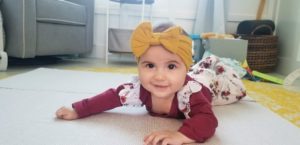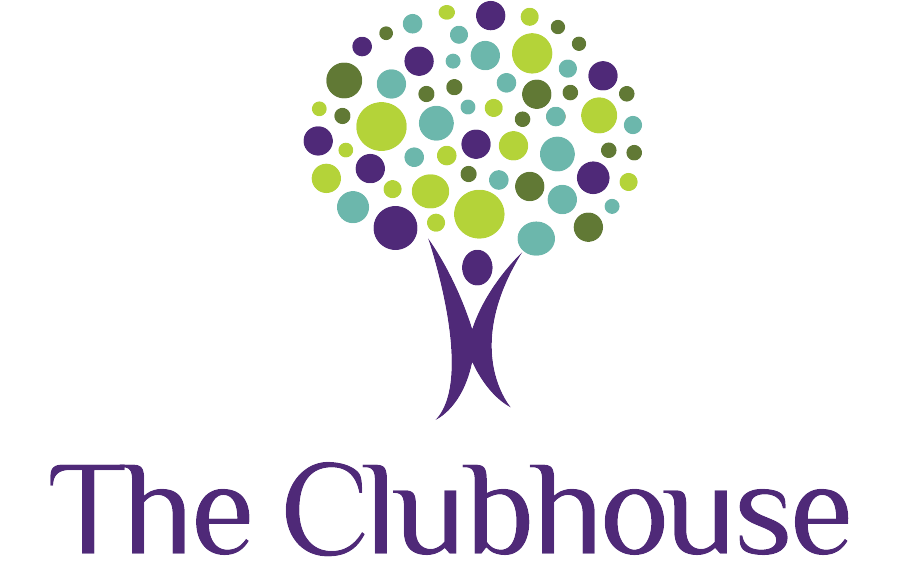Pediatric physical therapy focuses on improving gross motor skills by building muscle strength, flexibility, mobility, range of motion, and more. Physical therapists work with children of various backgrounds, including those with medical conditions, injuries, or those who have developed impairments. Our goal during physical therapy is to help your child regain their strength, mobility, independence, and confidence through targeted exercises, stretches, and more.
Physical Therapy

What is Physical Therapy?
How does Physical Therapy at the Clubhouse work?
At the Clubhouse, our play-based physical therapy helps keep children engaged which maximizes the benefits of our treatment. Our interdisciplinary team of therapists works together to develop an individualized treatment plan for your child. We develop each plan with the involvement of our families so you’re always informed and able to carry over the child’s in-clinic exercises and goals at home.

- Torticollis
- Plagiocephaly (flattening of baby’s head)
- Hypotonia (low muscle tone)
- Hypertonia (increased muscle tone) and Spasticity
- Toe Walking/Gait Abnormalities
- Orthopedic and Sports Injuries
- Gross Motor Delay/Developmental Delay (not meeting milestones)
- Autism Spectrum Disorder
- Down Syndrome
- Other Genetic Syndromes
- Neurological Disorders (Cerebral Palsy, Spinal Muscular Atrophy, Muscular Dystrophy, etc.)
- Developmental Coordination Disorder (DCD)
- Therapeutic Exercise
- Neuromuscular Re-Education
- Manual Techniques
- Kinesiotaping
- Orthotics Coordination/Management
- Gait Training
- Child and Caregiver Education
- Home Exercise Programs
- Collaboration with our Clinic’s Interdisciplinary Team (OT, ST, DT, ABA)
- Collaboration with the Child’s Community Resources (Pediatricians, Medical Specialists, Teachers, etc.)
- Muscle Strength
- Flexibility and Range of Motion (ROM)
- Balance
- Coordination
- Proprioception/Body Awareness
- Gait and Mobility Needs
- Motor Planning
- Posture and Alignment
- Endurance
- General Developmental Delay (not meeting milestones)
Frequently Asked Questions
A pediatric PT is a therapist who typically works with patients from birth to 18 years of age. Generally speaking, they specialize in helping young babies and children to move their body in order to access their needs and explore their environment. Pediatric PT’s help children to reach their highest functional potential! They usually focus on strength, range of motion/flexibility, posture, balance, coordination, stair negotiation, gait patterns, and sometimes, sport-specific or play skills, but the list goes on and on depending on the patient’s age, diagnosis, and functional level.

People often think of PT’s as sports/orthopedic therapists or rehab therapists for older individuals. In the pediatric world, especially when working with infants, things look a little different! A PT session with a baby will usually look like play, with some hard work mixed in. Babies receiving physical therapy often need assistance to learn how to roll, sit up, crawl, pull to stand, and walk independently. Pediatric PT’s find toys, games, songs, and people who best motivate the baby and use these as tools to help them reach their developmental milestones. For example, your physical therapist might use bubbles or a rattle that lights up in order to work on sitting balance and reaching with a young baby.
A large part of a baby’s success in PT comes from parent and caregiver education. Your PT will educate you on a variety of activities and modifications that can be carried out at home in order to help your baby meet their goals. In some cases, it helps to have your therapist educate daycare teachers, grandparents, siblings, aunts/uncles, etc. in order to incorporate these activities into their everyday life, depending on who helps care for your baby during the week.
Physical Therapy with The Clubhouse can be private in-clinic or can take place within your home. Early Intervention services are offered from birth to 3 years and typically take place within the child’s natural environment, such as the home or daycare center. Recently, due to COVID-19, sessions have started taking place virtually!
It depends!
Typically, the sessions look like “play” again for the most part. If the child is older and can follow directions well, the session will be organized with exercises that target the child’s needs. For more sport-specific orthopedic conditions, resistance bands, weighted medicine balls, yoga balls, and free weights/ankle weights might be used for basic strength training, similar to those used with adults. PT will incorporate games and fun therapy tools to help motivate your child. For example, a scooter board, soccer cones, playground ball, and beanbags are all examples of toys that can help facilitate strength and coordination during a PT session with a younger child. Every child is different, so every therapy session is just as unique!
A typical PT session will last for 60 minutes and will include weekly home exercises for the family to follow. Your PT will help your child work toward their functional goals, whether it be managing muscle tightness or spasticity, reducing pain and swelling after an ankle sprain, helping a child receive an assistive device (gait trainer, orthotics, etc.) to improve their independent mobility, improving endurance to keep up with peers in gym class, or helping a child learn to ride a bike. At the Clubhouse, you’ll find a ball pit, rock climbing wall, slides, and swings to help engage and motivate your child. We want to make therapy sessions fun so that your kiddo forgets how hard they are working!
No. Not all children who receive PT have a diagnosis from a pediatrician or other medical doctor. As listed above, typically developing children often receive PT short-term to manage and rehabilitate injuries or to work on developmental delays. Examples of common developmental delays include difficulty running, jumping, hopping or balancing on one foot, throwing/catching/kicking a ball, walking safely up and down the stairs, or riding a bike. Children can receive PT for general muscle weakness (hips, core, etc.), delayed balance skills, or concerns from parents that their child is not able to keep up with their siblings or peers.
On the other hand, there are a variety of common diagnoses that may warrant outpatient PT. Some examples include: Down Syndrome, neurologic conditions (Cerebral Palsy, Spinal Muscular Atrophy, Muscular Dystrophy, etc.), torticollis (head tilt) and plagiocephaly (a flat spot on your baby’s head), Autism Spectrum Disorder, Developmental Coordination Disorder, Idiopathic Toe Walking and other gait abnormalities, orthopedic conditions, hypotonia (low muscle tone), and general developmental delays as described earlier.
When in doubt, check it out! The Clubhouse offers free 15-minute screenings for infants and children- contact us to learn more about setting up a PT screening for your child in order to help determine the need for a formal evaluation!
